In a first, Taliban, US publicly admit ‘progress on vital issues’ in talks
This by far is the closest to a peace deal the two sides could reach, say analysts
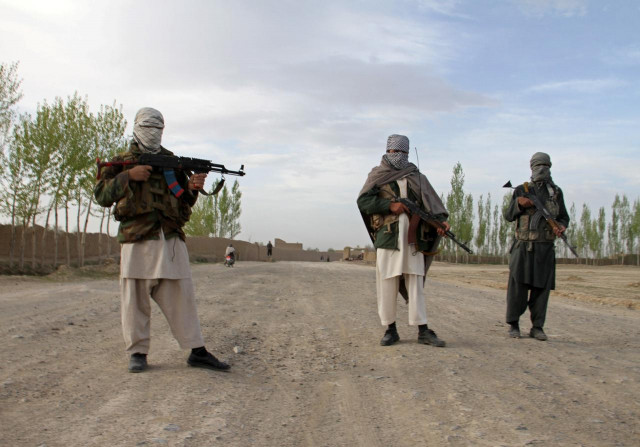
Representational image. PHOTO: REUTERS
In a rare development on Saturday, the two sides admitted "progress on vital issues" in their talks, albeit the insurgents said there was no agreement on ceasefire or talks with the Afghan government, which they deride as American puppet.
US chief negotiator Zalmay Khalilzad held negotiations with Taliban representatives at their political office in the Persian Gulf state of Qatar for six days, much longer than planned and longer than any previous attempt to end the bloody conflict.
Subsequently, Khalilzad left the Qatari capital of Doha for consultations in Kabul.
"This round of negotiations revolving around the withdrawal of foreign troops from Afghanistan and other vital issues saw progress," Taliban spokesperson Zabihullah Mujahid said in a statement emailed to The Express Tribune Saturday night.
US, Taliban inch closer to deal in Doha
"But since issues of critical nature need comprehensive discussions; therefore, it was decided that talks about unsolved matters will resume in similar future meetings," Mujahid further said in the statement. He reiterated that the "Islamic Emirate" stance during the talks was very clear: progress on other issues is impossible until the issue of withdrawal of foreign forces from Afghanistan is agreed upon.
However, he dismissed some media reports that the Taliban negotiators have agreed on a cease fire and will hold talks with the Kabul administration.
The Taliban spokesperson also thanked Qatar for its 'facilitation role'.
The US representative was also satisfied with the progress in the talks. "Meetings here [in Doha] were more productive than they have been in the past. We made significant progress on vital issues," Zalmay Khalilzad said in a series of tweets on microblogging site Twitter.
2/3. Will build on the momentum and resume talks shortly. We have a number of issues left to work out. Nothing is agreed until everything is agreed, and “everything” must include an intra-Afghan dialogue and comprehensive ceasefire.
— US4AfghanPeace (@US4AfghanPeace) January 26, 2019
He said the two sides would build on the momentum and "resume talks shortly". "We have a number of issues left to work out. Nothing is agreed until everything is agreed, and 'everything' must include an intra-Afghan dialogue and comprehensive ceasefire," he added.
3/3. Thanks to the Government of #Qatar for their constructive engagement and their facilitation of this round of talks. Particularly the Deputy PM and FM @MBA_AlThani_ for his personal involvement.
— US4AfghanPeace (@US4AfghanPeace) January 26, 2019
Khalilzad thanked the Qatari government, particularly Deputy Prime Minister Muhammad Bin Abdur Rehman Al Thani, who is also the country's foreign minister, for their "constructive engagement and their facilitation of this round of talks".
Road map for peace in Afghanistan
Earlier on Saturday, Reuters news agency quoted Taliban sources as saying that the Taliban negotiators and US officials have "finalised clauses to be included in a draft agreement" to end the 17-year-old Afghan war. Details provided by the sources included apparent concessions from both sides - with foreign forces to be withdrawn from the country in 18 months from the future signing of the deal.
It is unclear whether the provisions have been fully accepted by the US side.
According to sources, the Taliban have offered assurances that Afghanistan will not be allowed to be used by al Qaeda and Islamic State militants to attack the United States and its allies – a key early demand of Washington. The Taliban said they will finalise a timeline for a ceasefire in Afghanistan but will only open talks with Afghan representatives once the ceasefire is implemented.
"Since the United States started to engage the Taliban, this by far is the closest to a deal," said Hekmat Khalil Karzai, a former Afghan deputy foreign minister who leads the Center for Conflict and Peace Studies and has been involved in the peace efforts for years.
"On both sides I sense there is seriousness, I sense there is commitment, and I feel there is resolve," he was quoted by The New York Times (NYT).
Afghan Taliban rule out talks with US in Pakistan
Karzai said the American side had shown that seriousness by beginning an effort that includes not only extensive meetings with the Taliban, but also outreach to all regional actors and stakeholders, such as Pakistan, Russia and China to cooperate. "I also see the resolve on the part of the Taliban," he said. "I see that they are moving beyond the standard rhetoric, that they are not only engaging but seem committed to a political settlement."
It will be months or even years before a final peace settlement is reached, but this is the first time there has been actual progress toward the prospect of peace; all earlier efforts to even start talks had failed.
According to NYT, the human cost has been high: 2,419 American lives; 1,142 allied lives; at least 62,000 Afghan military and police lives, and possibly as many Taliban lives; more than 14,000 civilian lives over the past decade; and at least twice those numbers on all sides wounded and maimed, many for life.
The expense was also enormous.
The United States alone has spent $932 billion since 2001 in Afghanistan; its allies and international agencies, many billions more. On reconstruction aid alone, America spent more on Afghanistan than on the entire Marshall Plan to rebuild post-World War II Europe, in today's dollars.
Many policymakers — and most Americans — have long agreed that it is time to get out of Afghanistan and hand matters over to the Afghans. The question now is whether that will cost the Afghan government control over the country.

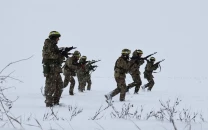
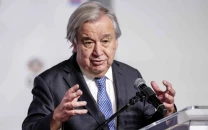

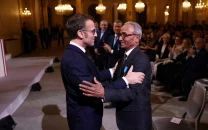
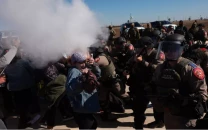













COMMENTS
Comments are moderated and generally will be posted if they are on-topic and not abusive.
For more information, please see our Comments FAQ